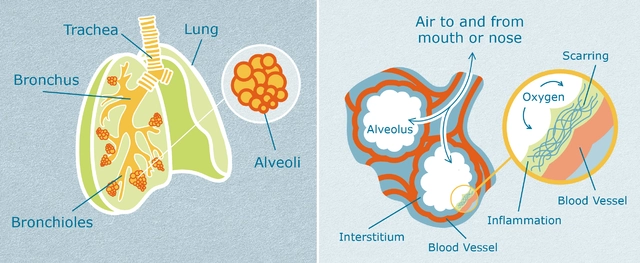Diflucan and Severe Skin Reactions — March 2024 Archive
A routine antifungal prescription has become the center of serious concerns. In March 2024 we covered a major update: reports tying Diflucan (fluconazole) to rare but life‑threatening skin conditions — Stevens‑Johnson Syndrome (SJS) and Toxic Epidermal Necrolysis (TEN) — and a growing wave of legal action.
What happened and why it matters
Diflucan is widely used for yeast infections and other fungal problems. Most people tolerate it fine, but a small number have developed severe skin and mucous membrane reactions after taking it. These reactions can be medical emergencies that require hospitalization and sometimes intensive burn‑unit care. The March post summarized new lawsuits and statements from Schmidt & Clark, LLP, which is pursuing cases across the U.S., arguing that affected patients need answers and compensation.
What SJS and TEN look like — act fast
SJS and TEN start with flu‑like symptoms for a few days, then a painful red rash, blisters, and peeling skin. Mouth, eyes, and genitals often get raw and sore. If you or someone you know started fluconazole recently and notices a spreading rash, blisters, or sloughing skin, get emergency medical care right away. Early treatment can reduce complications.
If a doctor suspects SJS/TEN, they’ll stop the suspected drug immediately and provide supportive care — often in a hospital. Keep samples: photos of the rash, the medication bottle, and medical records will be important later if you pursue a report or legal claim.
The lawsuits highlighted in March focus on whether warnings were strong enough and if patients were properly informed about the risk. Schmidt & Clark, LLP is collecting cases from people who developed severe reactions after taking Diflucan, and their update explains how affected patients might pursue claims for medical bills, long‑term care, and pain and suffering.
What should you do right now? First, seek urgent medical help for any concerning skin symptoms. Second, document everything: save the drug bottle, prescriptions, and medical notes; take dated photos of symptoms; and keep receipts for treatments. Third, report the event to FDA MedWatch — reporting helps regulators spot patterns. Finally, if you had a severe reaction after taking Diflucan, consider contacting a lawyer experienced in pharmaceutical injury to discuss options. Many firms offer free consultations and can explain deadlines and evidence needs.
We’ll keep tracking developments and legal updates. For detailed coverage of the March post, including statements from law firms and practical next steps for patients, read the full article on MedsEngage. If you want us to notify you about new updates in this case, use the site’s subscription or contact options to stay informed.
The Alarming Link Between Diflucan and Severe Skin Disorders: A Comprehensive Lawsuit Update
A recent update on lawsuits has put a spotlight on Diflucan, a popular antifungal medication, for its possible connection to severe skin conditions, Stevens-Johnson Syndrome (SJS) and Toxic Epidermal Necrolysis (TEN). Legal firm, Schmidt & Clark, LLP, is pursuing cases nationwide, offering insights into the drug's adverse effects and the legal recourse for affected individuals.
About
Health and Wellness
Latest Posts


Genetic Factors in Statin Tolerance: How Pharmacogenomics Testing Can Help
By Marcel Kornblum Nov 28, 2025

The Impact of Idiopathic Pulmonary Fibrosis on Relationships and Social Life
By Marcel Kornblum Apr 30, 2023

Quinolone Antibiotics and Corticosteroids: The Hidden Risk of Tendon Rupture
By Marcel Kornblum Jan 12, 2026

